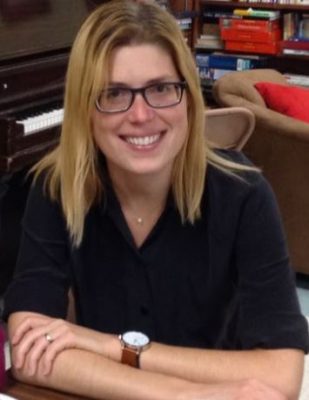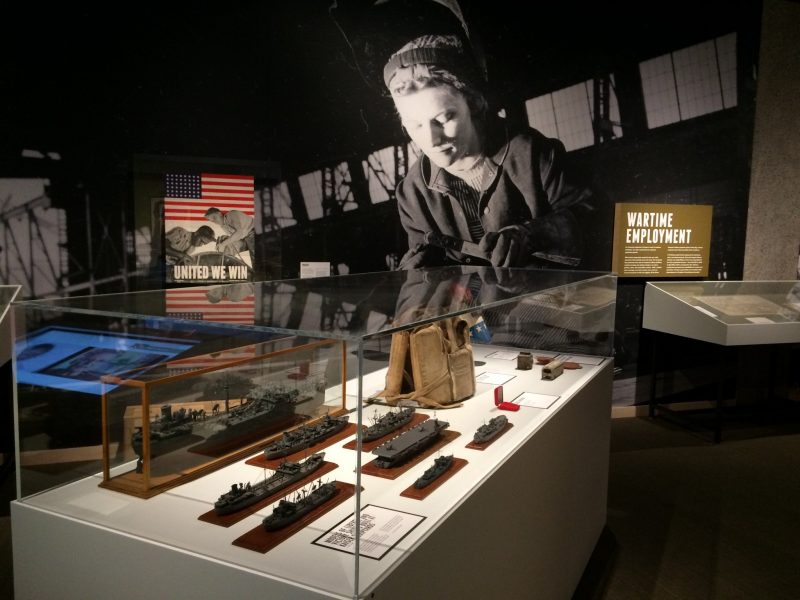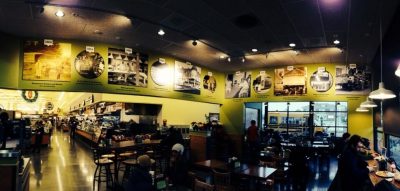Ask a consulting historian: Morgen Young
30 August 2016 – editors

Morgen Young. Photo credit: Courtesy of Aya Fujii.
Morgen Young is a project historian with Historical Research Associates, Inc. (HRA). She recently joined the firm’s Portland, Oregon office, after running her own consulting business for seven years. Her work focuses on exhibit development, oral history, digital history, and historic preservation. She currently serves as the co-chair of NCPH’s Consultants Committee and manages the committee’s Twitter account, @NCPHConsultants.
How did you first become involved in historical consulting?
I started my consulting career almost immediately after graduate school. I received my MA in Public History from the University of South Carolina in May 2009. That month, my husband and I drove across the country to move to Portland, Oregon. My rationale was that since the country was in the middle of a recession, it would be difficult to find work anywhere, so we might as well live in a cool city. As it turned out, it was practically impossible to get a volunteer position, let alone a paid job, at any of the public history organizations in Portland. I reached out to a former employer in Anchorage, Alaska, and they brought me on board as a consultant. With little knowledge about what exactly I was doing, I registered a limited liability corporation that fall and started building my business. Initially, I took on every project that came my way, volunteered for several local nonprofits, got myself listed on some resource and business directories, and built up my digital presence until I couldn’t be ignored. After nearly two years, I became known well enough around town to maintain a steady stream of clients and projects.
What advice would you give to those interested in becoming consulting historians?
I often meet graduate students and new professionals at the NCPH annual meeting who are interested in historical consulting. My first piece of advice to them is to avoid doing what I did. I was only able to focus full time on consulting because we had two incomes in our household. Those first couple of years were challenging. If you’re interested in pursuing a career in consulting, I would first look for a job at a consulting firm, like HRA, Gray & Pape, or New South Associates. If you are determined to start your own business, then I recommend that you begin to build a client base slowly while working full or part time. This can mean working evenings and weekends–so you need a certain level of determination and a steady source of caffeine. Once you have a solid client base, you can then transition to working for yourself full time. I also recommend that you establish a strong online presence–a business website as well as social media accounts that you update regularly.
Do you specialize in a particular field of public history?
Much of my work centers on exhibits and historical displays. Often, a client, such as a hospital, university, or port authority, hires me to curate an exhibit. Sometimes these projects commemorate a big anniversary, sometimes they are topic specific. I will come on board as the curator and I am responsible for all the research and writing. Many of these exhibits involve project management, so I coordinate with the client, exhibit designer, fabricators, and installers, and if the show is to be displayed in a museum, the institution’s staff as well. Oral history is another focus of mine. I currently serve as the project manager of a university’s oral history program. I frequently incorporate oral history into the research phase of my projects. In the last few years, I have also increasingly focused on digital history, developing content for websites, curating digital exhibits, and directing short documentary films.

In 2015, Morgen co-curated an exhibit at the Oregon Historical Society that examined the global and statewide impacts of World War II. Photo credit: Courtesy of Morgen Young.
How do you handle the business aspects of your consulting work?
Now that I work for HRA, someone else handles the administrative side of things. When I was working solely for myself, I managed all the accounting for my company, including billing clients and paying quarterly taxes. I had to learn all the business aspects, including contracts, insurance, and profit-and-loss statements, on my own. I hired a lawyer early on to prepare a standard contract for me to deliver to clients. And I have an accountant to help me during tax season.

In addition to museum exhibits, Morgen also curates historical displays for hospitals, universities, and grocery stores, like this one for New Seasons Market in Portland. Photo credit: Courtesy of Morgen Young.
Do you collaborate with other professionals on projects?
I frequently collaborate with graphic designers on exhibit projects. I also work closely with video producers, both on oral history projects and documentary films. One of my favorite aspects of consulting work is the opportunity to both work with other public history professionals as well as those in creative fields like design and videography.
Describe a recent project you completed.
One project I’m particularly proud of is Uprooted: Japanese American Farm Labor Camps During World War II which is a traveling exhibit produced by the Oregon Cultural Heritage Commission. I served as the project director. I was responsible for researching and writing the content, managing an oral history program, directing two documentary films, and overseeing all of the dedicated individuals involved in producing the show and its companion website. That project combined the aspects of public history, and in turn historical consulting, I’m most interested in: exhibit development, oral history, digital history, and community history. The exhibit, which documents a little-known aspect of the Japanese American wartime experience, has received a strong public response. It has been traveling throughout the Pacific Northwest and will make its California debut this fall at the Japanese American National Museum in Los Angeles.
What are the biggest rewards and the biggest challenges of historical consulting?
The biggest challenge for me is the feast or famine manner in which consulting happens. I prefer being as busy as I can, so I still haven’t learned how best to handle those quiet days, or sometimes weeks, in between projects. It can be terrifying, especially when you are working as a sole practitioner, to have a lull in work. But, you have to learn to appreciate your down time, because another project will come along.
The rewards are numerous. I had no idea when I started consulting full time in 2009 that it would become such a passion of mine. Through the NCPH Consultants Committee, I’ve been able to advocate for the historical consulting community. We often have different work scenarios and worries from other public historians–we have to determine our hourly fees, we have to market our services, and we have to balance doing historical work with running a business. Beyond the advocacy component, I love historical consulting because I get to constantly work on new projects. For many of the exhibits I’ve curated, I have had to become a quick expert on any number of subjects, and sometimes, those projects can lead you to becoming interested in a new field of public history. I was hired to develop an exhibit about diversity in the health sciences early in my consulting career. That project led to another, and suddenly, much of my work focused on the history of health sciences. I find it exhilarating to not always know which project is coming around the bend and how it might influence my career for the next several years.
~ This post is part of our “Ask a Consulting Historian” series, brought to you by the NCPH Consultants Committee. Follow the Consultants Committee on Twitter at @NCPHconsultants. You can find more “Ask a Practitioner” posts here.



